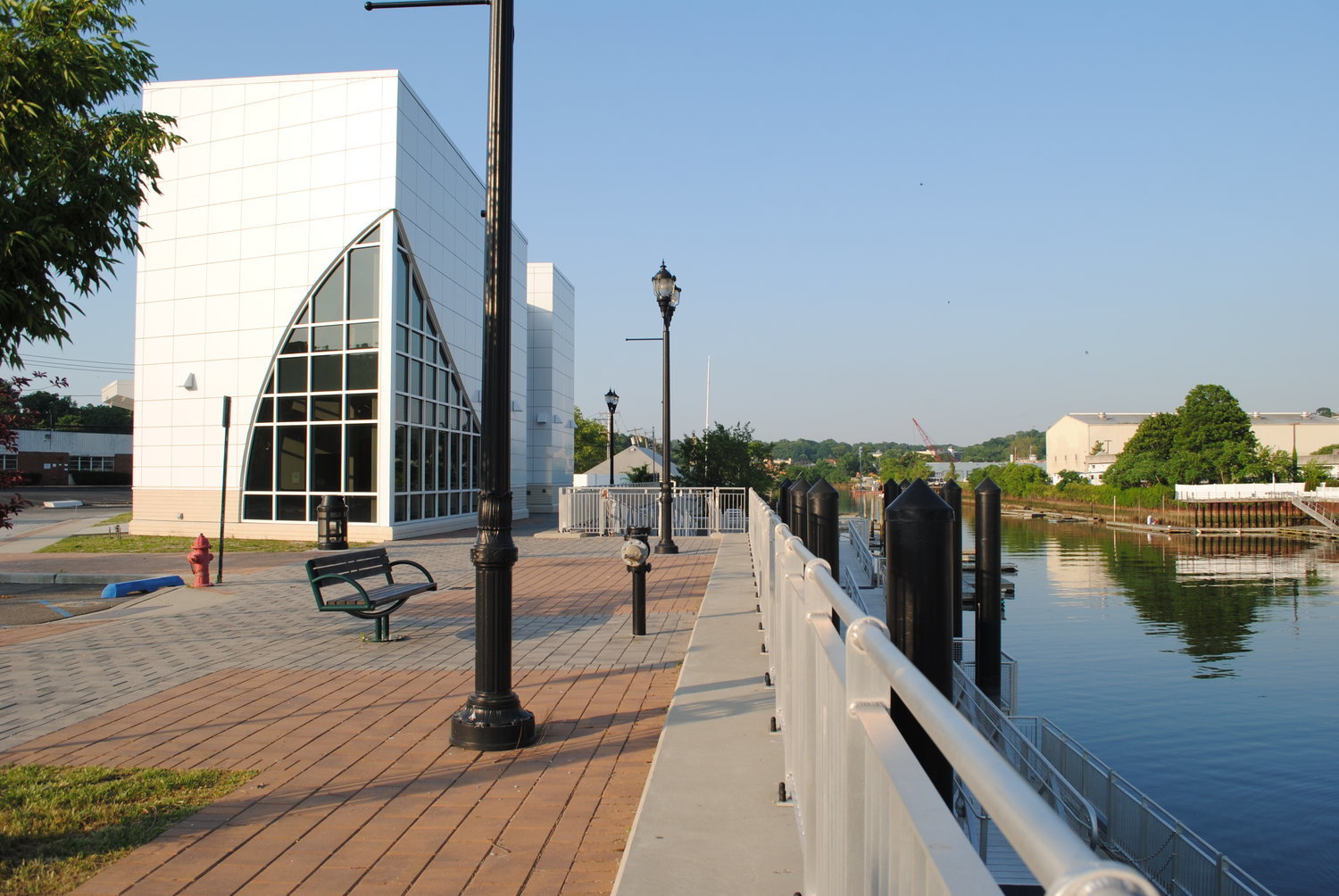Glen Cove moves ahead with ferry service
At its meeting on Tuesday, the Glen Cove City Council unanimously voted to enter into a two-year, more than $3 million contract with Hornblower N.Y. to make the New York City-based company the operator of the city’s ferry.
The move marks a milestone in the city’s plan to have a commuter ferry up and running by May. If it is not operational by then, the city would have to repay a $16.6 million grant it was given by the federal government in 2003. Mayor Timothy Tenke said the city’s effort to establish ferry service had stalled for years until he took office in 2018.
“When I came in, I was told I had to get the ferry running right away or we’d be stuck paying back $16 million,” Tenke said. “That’s not an option. And we’re not fooling ourselves, either, with this ferry. We know it’ll be a tough launch.”
Although Glen Cove has seen ferry service come and go through the decades, the City Council is more optimistic about the new service, in part because of the partnership with Hornblower, the largest ferry service provider in North America. Shea Thorvaldsen, president of TMS Waterfront and an expert in the industry who has advised the city on the proposed ferry service for over a year, said there would be two morning and afternoon ferries from Glen Cove to Manhattan’s 34th Street ferry terminal. The boats can hold a maximum of 250 passengers, and the ticket prices would depend on ridership, concession sales and advertising.
While other terminals, like Roosevelt Island and Soundview in the Bronx, were considered as destinations, Thorvaldsen explained that a large majority of residents who filled out a survey last fall preferred 34th Street. Service to other locations could be possible in the future, he said, if the ferry is a success, which he was also optimistic about.
“While previous estimates showed that about 569 people were interested in the ferry,” Thorvaldsen said, “. . . our recent surveys found that interested ridership numbers were around 770 to 1,400.”
Despite the positive outlook, there are still serious concerns about ferry service. Should it fail, the city would have to pay Hornblower a $1 million termination fee, which Tenke said was previously set at $3 million until the city managed to negotiate it down. The city could stand to lose a total of about $4 million, which officials said would still be better than the $16.6 million it would owe the federal government if there were no ferry at all.
The success of the initiative is also tied to the city’s 2020 budget, which includes nearly $1.9 million in projected revenue from the ferry service. Tenke said that the ferry would have to be packed with 250 regular customers from the projected launch date in May to the end of the year for that revenue to be realized. Former City Council members Kevin Maccarone and Joseph Capobianco have said that it was unrealistic to expect that kind of success. Although City Councilman Gaitley Stevenson-Mathews said that the city was caught between “a rock and a hard place,” he acknowledged that the ferry could prove to be an asset if the city does everything it can to support ridership.
“I don’t think it’s going to fly without . . . subsidies and grants,” Stevenson-Mathews said. “Luckily, the mayor has been working on that, seeing as nearly every ferry service to the city gets a subsidy from the state.”
Thorvaldsen said that a committed ridership would be the key to less expensive tickets and expanded service. Although the ferry is scheduled to operate only during the workweek, weekend trips, luxury rides and connections to other terminals could all be possible if Hornblower determines that the demand is there.
“The city decided to go with Hornblower because they also bring alternative services,” Thorvaldsen said. “As the ferry evolves, new events and rides can be planned.”

 44.0°,
Mostly Cloudy
44.0°,
Mostly Cloudy 




